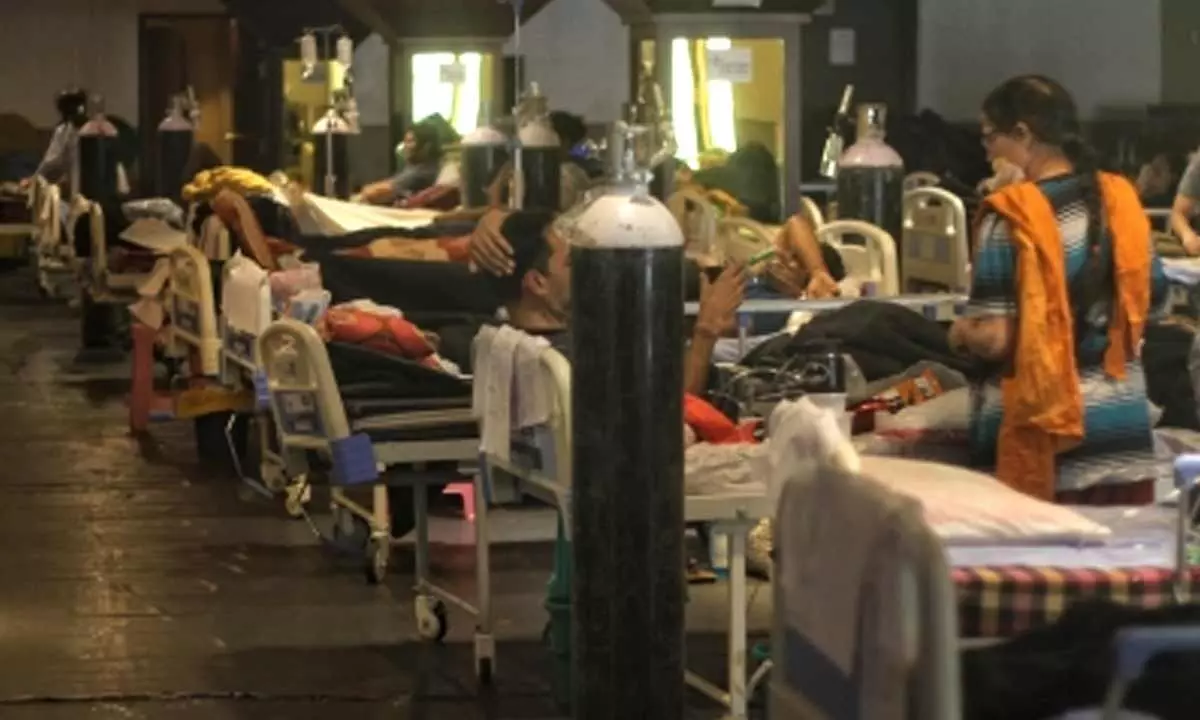Live
- Saurabh Netravalkar, Unmukt Chand, Dwayne Smith and Rahkeem Cornwall headline USPL
- NPP asks members not to attend meeting called by Biren govt
- Bulls roar on Dalal Street, Sensex and Nifty up over 2 pc
- Over 880,000 people displaced in Lebanon, food security deteriorates: UN
- BGT 2024-25: Bumrah picks 4-17 as Australia trail India by 83 runs in 17-wicket day
- Calcutta High Court stays order on demolition of hotels in Bengal’s Mandarmani
- AP Legislative Council Approves Key Bills
- WhatsApp Update: WhatsApp Rolls Out Group Mentions in Status Updates
- Czech PM, European Council President-elect discuss cooperation, EU priorities
- 47 killed, 22 injured in Israeli airstrikes on Lebanon's Baalbek-Hermel
Just In
Delhi HC urges NITI Aayog panel to expedite process on integrated medical system

The Delhi High Court on Monday asked the committee established by the NITI Aayog to expedite the process of formulating a comprehensive integrated medical system that combines the strengths of various branches of medicine.
New Delhi: The Delhi High Court on Monday asked the committee established by the NITI Aayog to expedite the process of formulating a comprehensive integrated medical system that combines the strengths of various branches of medicine.
A Division Bench of Chief Justice Satish Chandra Sharma and Justice Sanjeeb Narula was hearing a Public Interest Litigation (PIL) filed by Ashwini Kumar Upadhyay, a lawyer and a BJP leader, advocating for a holistic approach to medicine.
The Bench acknowledged the wealth of knowledge present in different medical systems, such as Allopathy, Ayurveda, Yoga, Naturopathy, Unani, Siddha, and Homeopathy.
The court suggested that it should be explored whether these various branches of medicine can be integrated.
The Bench said that these medical systems are distinct branches with differing understandings of the human body and that all bodies are unique.
It expressed a belief that if this knowledge can be integrated, it could lead to a more comprehensive healthcare approach.
Additional Solicitor General Chetan Sharma, representing the Indian government, supported the idea of integration, asserting that it would incorporate "the best of everything."
The court also clarified that the matter of integration should be determined by experts. It stated: "It is not for you and me to decide. It is for the experts to decide."
Upadhyay informed the court about the existence of a committee established by NITI Aayog to address the issue. In response, the court urged the committee to expedite its work on this matter.
Furthermore, the court included two additional entities, the Medico Legal Action Group and the Patanjali Research Institute affiliated with yoga exponent Ramdev, as parties to the proceedings.
Earlier, the High Court had sought the reply of the Central government and other respondents to the plea seeking the adoption of an Indian Holistic Integrated Medicinal Approach rather than a colonial segregated way of Allopathy, Ayurveda, Yoga, Naturopathy, Unani, Siddha, and Homeopathy in order to secure the right to health.
In order to support the PIL, the Patanjali Research Institute had, in September 2022, filed an intervention application seeking their impleadment in the matter.
To secure the right to health, the plea also seeks to implement a Holistic Integrated Common Syllabus and Common Curriculum of Allopathy, Ayurveda, Yoga, Naturopathy, Unani, Siddha, and Homeopathy for all medical colleges.
The petitioner has submitted that in spite of huge investments, the current healthcare system of India was not able to benefit the Indian population in fighting against acute and chronic diseases.
“Health care delivery in India is classified under three categories primary, secondary, and tertiary care. All three levels need to work cohesively to help deliver healthcare on all four pillars,” he said.

© 2024 Hyderabad Media House Limited/The Hans India. All rights reserved. Powered by hocalwire.com






